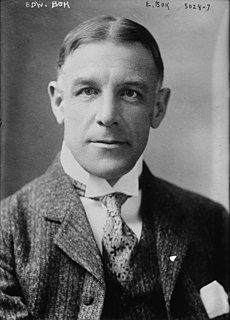A Quote by Isaac Asimov
The age of the pulp magazine was the last in which youngsters, to get their primitive material, were forced to be literate.
Related Quotes
I've told youngsters not to write their autobiographical novel at the age of twenty-one; to save it for the time when they're fifty-one or sixty-one. They should write other novels first, to learn their craft; they shouldn't cut their teeth on the valuable material of childhood because they'll never have better material, ever, to work with.
I was co-editor of the magazine called The Jazz Review, which was a pioneering magazine because it was the only magazine, then or now, in which all the articles were written by musicians, by jazz men. They had been laboring for years under the stereotype that they weren't very articulate except when they picked up their horn.
We're living in a Dark Age of macroeconomics. Remember, what defined the Dark Ages wasn’t the fact that they were primitive — the Bronze Age was primitive, too. What made the Dark Ages dark was the fact that so much knowledge had been lost, that so much known to the Greeks and Romans had been forgotten by the barbarian kingdoms that followed.
And when you get an eminent journal like Time magazine complaining, as it often has, that to the young writers of today life seems short on rewards and that what they write is a product of their own neuroses, in its silly way the magazine is merely stating the status quo and obvious truth. The good writing of any age has always been the product of someone's neurosis, and we'd have a mighty dull literature if all the writers that came along were a bunch of happy chuckleheads.
There was so much on 'Superstar' that we didn't intend. I mean, there were things that we did which were innovative, but some of them were forced on us because we couldn't get anybody to do the show. 'Evita' was much more sophisticated. That doesn't make it better, but it does make it different. We knew what we were doing.
Especially with a magazine like Lampoon, which was very dependent on newsstand sales. Our readers didn't usually occupy the same address long enough to get a subscription, because they were in college, or they were hippies. So it was very up-and-down, and we had to calculate how many to print, which was always sort of a headache from a business point of view.
Monotheism at Sinai, primitive Christianity, messianic socialism: these are the three supreme moments in which Western culture is presented with what Ibsen termed "the claims of the ideal." These are the three stages, profoundly interrelated, through which Western consciousness is forced to experience the blackmail of transcendence.
Every once and a while somebody writes a script, but even regardless of what age you are, most of the actors would all agree that it's all based upon material and the material has got to spark with you. It may be great material but you think it's great material for somebody else. Or it's great material and I'm perfect for it. So, you just have to make that judgment and if you feel in the mood to do it.





































